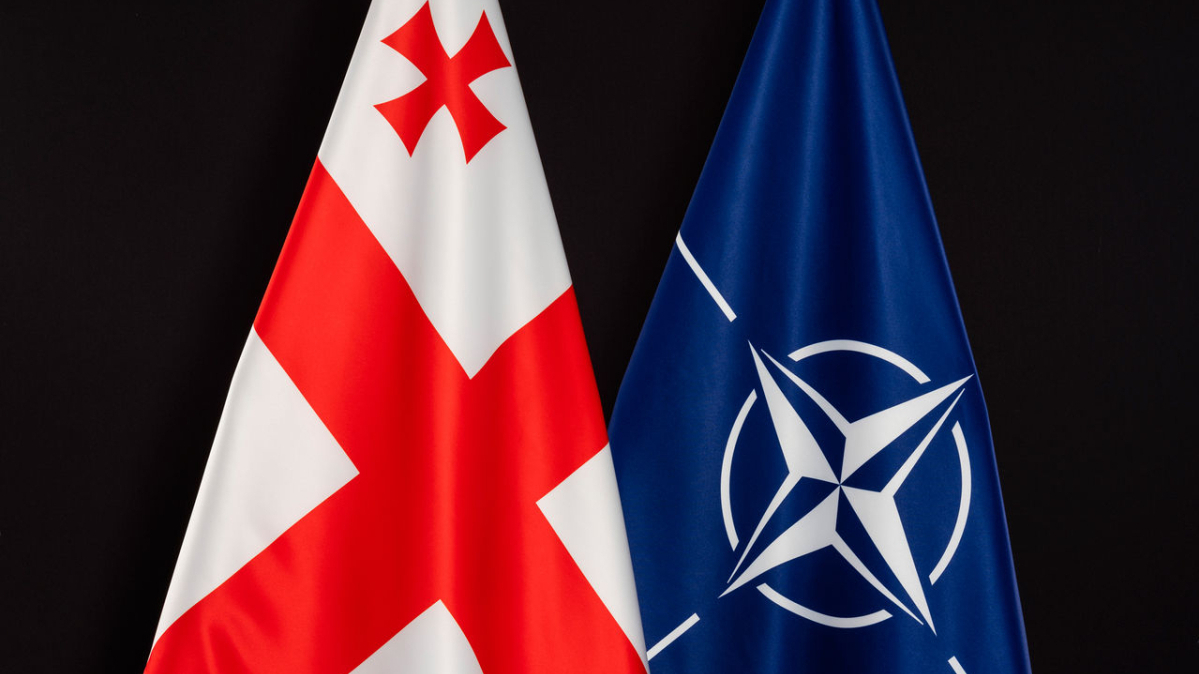Two killed in Israeli attack on first day of Ramadan in Gaza
Two Palestinians were killed on the first day of Ramadan after Israeli forces opened fire in the Gaza Strip, according to local sources and hospital o...

Georgia’s political leadership has sharply criticised NATO’s long-standing hesitation on memberships, accusing the alliance of 'finger-pointing'.
Parliament Speaker Shalva Papuashvili declared that the alliance must take responsibility for years of stalled progress in Georgia's journey to full membership.
His remarks, triggered by comments from incoming NATO Secretary-General Mark Rutte, reignite a debate that has defined Georgia’s foreign policy since the 2008 Bucharest Summit.
Georgia’s aspirations to join NATO have returned to the forefront after Papuashvili delivered one of his strongest statements to date, accusing the alliance of maintaining an “open door” in words but not in action.
The Speaker argued that Georgia has fulfilled every major obligation of a NATO aspirant — politically, institutionally, and militarily — yet continues to face strategic ambiguity that only heightens security risks in the region.
Central to Papuashvili’s argument is Georgia’s extensive military contribution to NATO missions, especially Afghanistan. Georgia was the largest non-NATO troop contributor, at one point deploying ten times more soldiers than the Netherlands, the country led by Mark Rutte during the mission.
“We fought side by side with NATO soldiers. Georgia has paid the human cost,” Papuashvili stressed, highlighting a long-standing grievance that Georgia has done far more operationally than many NATO members but remains outside the alliance.
According to the Speaker, NATO’s failure to make a decisive move leaves Georgia — and similarly Ukraine — in a vulnerable “in-between zone” with unclear protections and higher security exposure.
NATO maintains that enlargement is guided by a broad set of principles. Membership is not determined solely by military cooperation, where Georgia has consistently excelled, but also by political stability, democratic governance, and alignment with NATO values.
These democratic benchmarks, alliance officials have repeatedly said, hold equal weight to military readiness.
Georgia was assured in 2008 that it would become a NATO member — yet no timeline was provided. Nearly two decades later, Papuashvili says that repeated verbal affirmations are no longer enough.
“Georgia has done everything. Year after year we stand before an open door that never opens,” he said. “The Georgian people are no longer naive.”
The Speaker warned that prolonged indecision not only undermines Georgia’s security but destabilises the region.
He pointed to Ukraine’s appeals for NATO clarity prior to the 2022 invasion as evidence that unresolved membership questions can escalate into geopolitical vulnerability.
Ruben Vardanyan has been sentenced to 20 years in prison by the Baku Military Court after being found guilty of a series of offences including war crimes, terrorism and crimes against humanity.
The Pentagon has threatened to designate artificial intelligence firm Anthropic as a “supply chain risk” amid a dispute over the military use of its Claude AI model, according to a report published Monday.
Israeli airstrikes on southern Lebanon killed two people in 12 hours, Lebanon’s Health Ministry said on Tuesday.
Representatives of Ukraine, Russia and the United States are set to meet in Geneva for a third round of trilateral negotiations aimed at ending the nearly four-year war, even as both sides intensify military pressure on the ground.
President Donald Trump said he will be involved “indirectly” in nuclear negotiations between the United States and Iran in Geneva, as both sides resume diplomacy against a backdrop of military pressure and deep mistrust.
Two Palestinians were killed on the first day of Ramadan after Israeli forces opened fire in the Gaza Strip, according to local sources and hospital officials.
Aghdam’s Qarabag experienced a 6–1 defeat to England’s Newcastle United in the first leg of their UEFA Champions League play-off tie.
British Steel has secured a multi-million-pound order to supply rail for a major high-speed railway in Türkiye. Backed by UK Export Finance, the deal will see 36,000 tonnes of rail used on a 599km line between Ankara and İzmir, prompting the company to resume round-the-clock production.
A new freight corridor linking China with Tajikistan via Kyrgyzstan and Uzbekistan has entered pilot operation, marking another step in Central Asia’s expanding transport connectivity.
Afghan and Uzbek traders have signed 25 agreements worth more than $300 million at a business conference, as officials from both sides said trade ties are expanding rapidly and could grow further in the coming years.
You can download the AnewZ application from Play Store and the App Store.

What is your opinion on this topic?
Leave the first comment